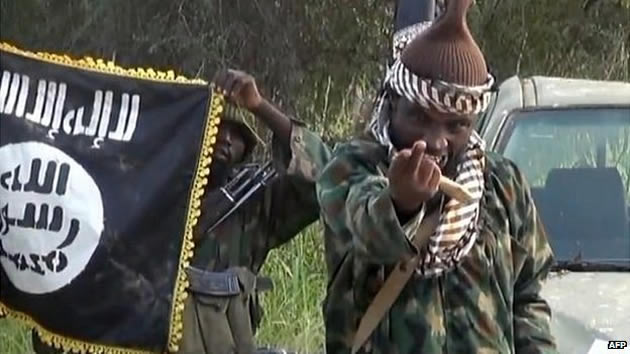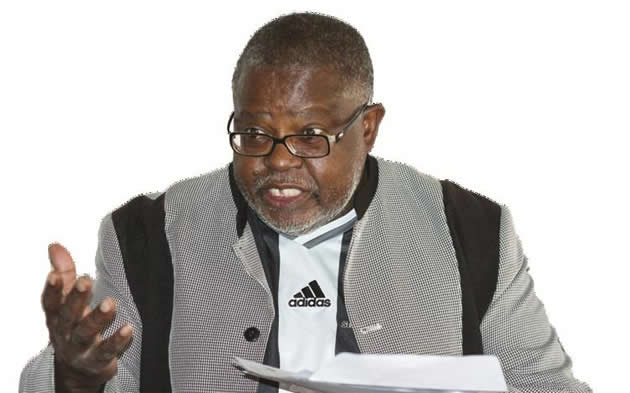Boko Haram resorts to guerilla tactics as pressure mounts

 ABUJA – As multinational forces and the Nigerian military make inroads against Boko Haram in Nigeria’s north-east, the sect has been staging attacks outside its usual areas of strength. Experts say this may be a sign of a shift in the group’s tactics.
ABUJA – As multinational forces and the Nigerian military make inroads against Boko Haram in Nigeria’s north-east, the sect has been staging attacks outside its usual areas of strength. Experts say this may be a sign of a shift in the group’s tactics.
Boko Haram’s attack on the city of Gombe earlier in February came as a surprise to many. The fighters reached the heart of the city, fired on soldiers, and distributed leaflets warning against voting in the March 28 presidential election. Boko Haram has carried out bombings in Gombe, but the attack was unusual.
A resident of the town of Dadin Kowa, which was also attacked by the insurgents, said the incursion seemed less an attempt to occupy territory than to simply spread fear.
“I think their aim was to scare people inside the Gombe town, because . . . they entered the heart of the town, even around the military barrack area,” said the unnamed resident.
During the past weeks, a renewed offensive by the Nigerian military and troops from neighbouring Chad, Cameroon and Niger has put pressure on Boko Haram. Nigeria’s military says it has recaptured a string of towns from the militants, including Baga, where the extremists overran a military base and carried out a massacre last month.
Freelance journalist and security analyst Alkasim Abdulkadir said the military gains are forcing Boko Haram to change tactics.
“If the offensive gets more intensive, then we will see them looking for new frontiers to wage their war,” said Abdulkadir.
He said he expects a resurgence of bomb and suicide attacks as Boko Haram is pushed out of their strongholds in the northeast.
“Now they’re going to activate cells in cities and attempt to hit at cities, and continue the war, but not in occupying territories, and not in being very defensive. You know they’re going to go underground, but just a motley [group] of armed insurgents, fighting in some chosen areas,” said Abdulkadir. But I believe that the attack is going to continue more with suicide bombings but also attack on urban populations.”
In recent days, Boko Haram attacked a series of villages in northern Adamawa State, near the town of Hong. They briefly occupied Hong last year, before being pushed out by the military and local vigilantes.
Imam Dauda Bello, a member of the interfaith Adamawa Peace Initiative, said he believes the fighters are trying to reach cities.
“They were trying to get across to Cameroon and other places, but now Cameroon is attacking them also, so they can’t go to Cameroon, they can’t go to Niger and they can’t go back to Chad,” said Bello. “So they’re trying to find a way of escape. So long as they can get to small villages and overrun them and pass, maybe they would just get into town perhaps at night or anytime so that they will not be detected so that some of them will escape like this, as ordinary citizens.”
The fear of infiltrators is hitting camps for internally displaced people particularly hard, said Bello. Administrators are now dealing with allegations that people who seek refuge in the camps are members of the group.
Meanwhile, a Nigerian woman who has campaigned against Islamist extremists Boko Haram was on Tuesday awarded a Japanese peace prize worth $170,000.
Esther Ibanga, a pastor and activist in Nigeria, has kept up a vocal protest against the kidnappings that Boko Haram has made almost routine, the Niwano Peace Foundation said.
The foundation said it had awarded her its 20 million yen annual prize because of the way she has tirelessly pressured central and local governing officials in her efforts to fight back against extremists.
“Esther has worked extensively to foster and facilitate reconciliation between conflicting religious and tribal groups,” setting up an organisation that has all tribal women leaders on its membership, the Buddhist group-backed foundation said.
Boko Haram fighters have kidnapped hundreds of schoolgirls, causing global outrage and a social media campaign to release them.
Over 13,000 have been killed while more than one million people have been left homeless since 2009 as the extremist militants try to carve out an Islamic state in Nigeria’s north-east. – AFP










Comments